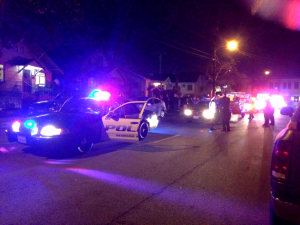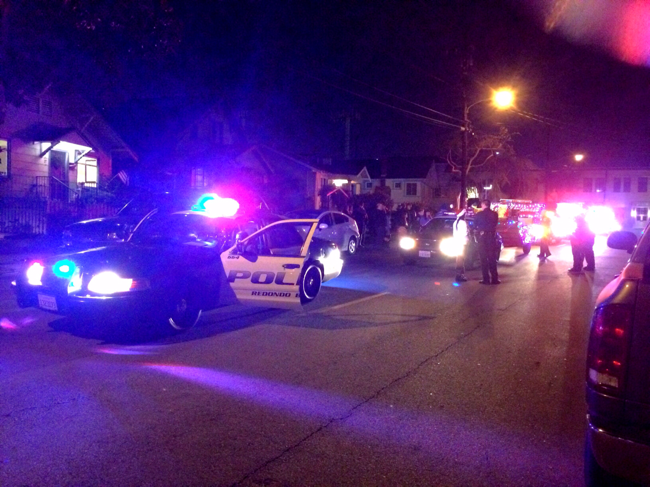>> My son ’ s stepmother showed up on my doorstep one blustery January afternoon. She looked at me with bruised and swollen eyelids, and spoke through split lips, “ You know where to go for help.”
My son ’ s stepmother showed up on my doorstep one blustery January afternoon. She looked at me with bruised and swollen eyelids, and spoke through split lips, “ You know where to go for help.”
Ten years before, I had been in her shoes — fleeing the same batterer, bearing the same scars. I had escaped, and I knew the path and could walk with her on the way out. Right?
There is a lot of talk this month about the troublesome phrase “ >>Why doesn’t s/he just leave? ” I won ’ t rehash the myriad of ways that this is a harmful assumption. Rather, I will tell you what happens in the aftermath.
Domestic violence does not go away once you get out. It lives in your bones — certain sounds will always make you cringe, anxiety nudges you awake at night. It affects your reactions and relationships with others, as well as your >>long-term physical health . And, depending on your situation, it can >>ruin your finances and lead to bankruptcy.
This is a forever problem.
Though he has not seen his father for over three years, my older son continues to suffer the effects of PTSD from their time together.
His younger brother never met my first husband, but he also lives with the ghost of that violence. He has witnessed the panic attacks and night terrors, sat patiently through countless hours in the waiting room of therapy offices, and grown weary with >>compassion fatigue .
My husband is endlessly supportive, but he cannot bear to hear the things that happened to me and my son at the hands of my ex. His instinct is to protect us, to shield us from past harms. And his heart aches at the failings of time and space — he feels guilty for not having known us sooner. He, too, suffers at the hands of my abuser.
The impact of domestic violence not only affects those people who can ’ t or won ’ t “ just leave. ” Trauma is etched in the brain, body and soul of those touched by abuse and is transmitted across social lines.
Every year, more than 10 million people are physically abused. This is a >>public health epidemic , and it affects everyone.
My family now lives a life of painless love — of hugs and kisses, firm yet kind parenting, and disagreeing without fear of violence. For this, I am deeply grateful. But none of that erases the past, and it doesn ’ t stop abuse happening to someone else.
I could have shut the door on my son ’ s stepmother that cold winter day. Instead, I chose to walk the path of recovery with her. Both of us were able to find a way out, but that ’ s not where it ends.
It never ends.
This is why we, as a society, need to educate ourselves and actively work to prevent domestic violence. This problem will not go away on its own.
To learn more about what you can do to prevent domestic and other violence, visit >>Prevent Violence NC .

There are no comments
Add yours